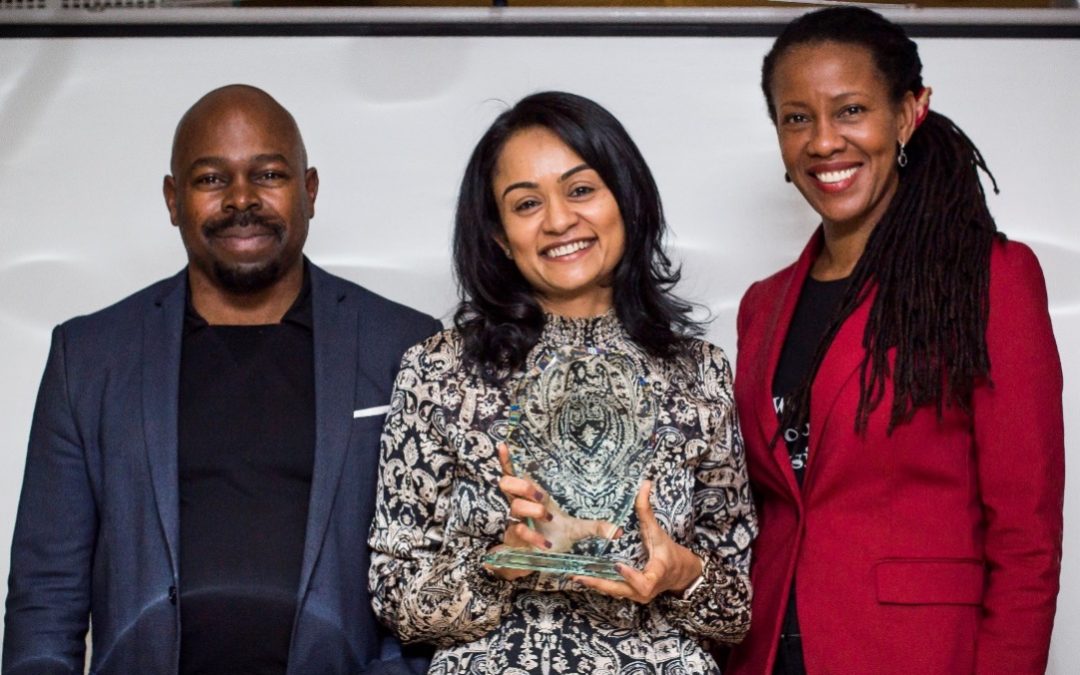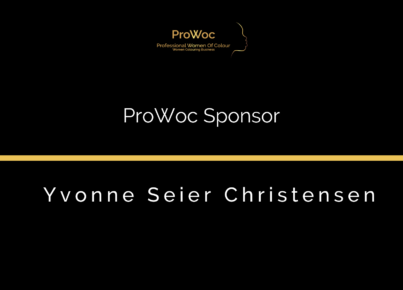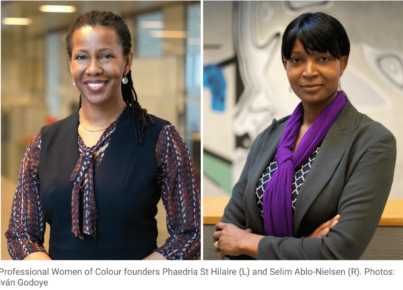What do a US-licensed lawyer from Ghana, a Cameroonian medical doctor and a communications specialist from India have in common? They are women of colour who moved to Denmark and their career progression stalled.
Although increasing ethnic diversity is good for business, with research showing that leadership teams with high ethnic diversity outperform those with a high gender diversity by more than 10 percentage points, highly educated females who immigrate to Denmark still face difficulties entering and thriving in the Danish labour market
The experienced, US-licensed Ghanian lawyer who moved to Denmark with her Danish partner was certain that she would find a relevant job in a short time. Instead, she faced many rejections, no interviews and settled for unpaid, voluntary work. After almost three years she got a permanent, full-time job as a legal counsel. Many highly qualified, skilled expats and immigrants who are keen to be a part of the Danish workforce somehow get locked out.
Now we turn to Mette, a Danish leader who acts on the premise that diversity is good for business according to a Boston Consulting Group’s survey in which companies with above average diversity scores report up to 45% innovation revenue.
When Mette Hansen told her leadership team that she was going to hire a non-Dane, she was met with resistance. The resistance came in the form of well-meaning questions and advice: “They do not speak Danish, how will the stakeholders respond to having to write and speak English?”; “They may not be a good cultural fit since they come from another country with another workplace culture – we are a Danish company”.
Since the company language was English and the candidate had the relevant competencies, Mette hired the non-Dane. And a few months later, she hired another non-Dane, a woman of colour, to be part of her team.
Two years later, the two employees had both left the company. In their exit interviews, they said that their main reason for leaving was that they did not feel included or that they belonged.
These two examples illustrate different sides of the D&I dilemma: how to harness the potential of diversity for the good of the workplace and society. It is clear that National origin, Ethnicity and Gender dimensions of diversity drive innovation and an increase in the bottom line. However, without inclusion, the crucial connections that attract diverse talent, encourage their participation, foster innovation, and lead to business growth won’t happen. With lack of inclusion in the workplace being cited as one of the four main reasons for lack of gender diversity in corporate Denmark, it is clear that diversity without inclusion is doomed to fail.
What can companies do to foster an inclusion culture?
Practising inclusion is challenging and there are different ways companies can drive inclusion so that it becomes integrated in the company culture. It starts with honest, self-reflection on the behaviours that leaders are role-modelling. Some companies implement company-wide 30-Day Inclusion challenges in order to raise awareness of these challenges and how to resolve them. HR and People Organisation departments can create inclusive leadership programs for senior level executives to be multiplied throughout the organization. Team leaders are encouraged to foster open communications in their teams, and senior executives to walk the talk when it comes to DEI implementation.
How ProWoc addresses the D&I dilemma
The experiences of the Ghanian lawyer, Indian Communication Specialist and Cameroonian Doctor are quite common and was one of the reasons that Selim Ablo-Nielsen and Dr. Phaedria Marie St.Hilaire founded Professional Women of Colour Network (ProWoc).
ProWoc’s mission is to increase the visibility and influence of women of colour and change the narrative and perceptions about people of colour in Denmark. The ProWoC Network comprises approximately 300 women of colour who are offered relevant programs to support their professional and personal growth: a mentoring program developed in collaboration with Djøf, a coaching program in partnership with executive coaches trained at Henley Business School and networking meetings with motivational speakers. ProWoc participates in conferences and workshops to change the prevailing perception about diversity and inclusion, and to support and encourage individuals and organisations to act for sustainable change.
Addressing both sides of the D&I dilemma, ProWoc is in a unique position to offer its members and allies a sense of community and tools to help integrate into the Danish workspace. Understanding that the focus cannot be on the minorities alone, ProWoc collaborates on the co-creation of diversity and inclusion policies, practices and culture with Danish companies.
ProWoc at a glance
Founded in 2019 by Selim Ablo-Nielsen and Dr. Phaedria Marie St.Hilaire
300+ Women of colour in Network
2022 Winner of National Blaze Award for work within Diversity and Inclusion
Collaboration partners include Deloitte, Novo Nordisk, HBK, Djøf among others
Instagram: IG
Facebook: FB
——————-
Article was written by
Dr. Phaedria Marie St.Hilaire, Ifeoma Okpala, Caroline Onyango-Dyregaard and Divya Rao





You must be logged in to post a comment.